LCC, Inc. was invited by Dignity Health Foundation to participate in a Human Trafficking Workshop for Health Care Providers.
In the same workshop, one of the speakers touched on trauma; types of trauma, effects, and how caregivers should approach victims of trauma.
Trauma informed services - provide safe environment where survivor can begin to learn affect control and feel safe, does not provide trauma specific therapy
Trauma involved services - therapy techniques influenced by trauma counseling, may not directly address the trauma
Trauma specific therapies - therapy targeted to identify, process, grieve, resolve, and integrate traumatic experiences
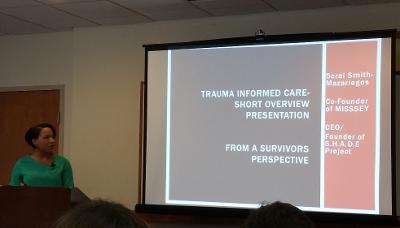
Types of Trauma
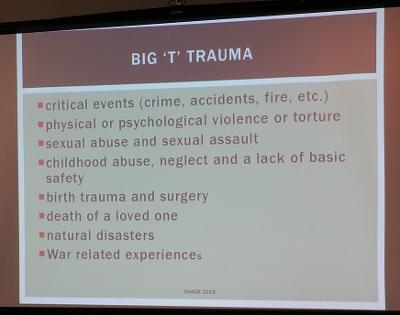
Events that can happen that seem large scale and life-changing comparatively to small traumas.
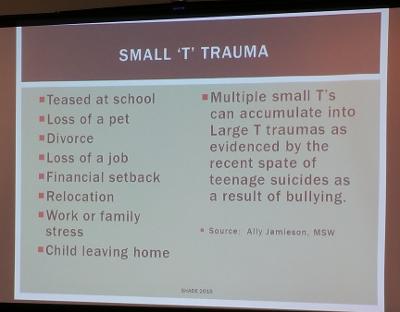
Though smaller scale, when there are multiple, they can accumulate into big traumas.
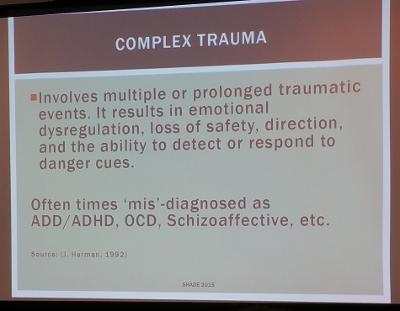
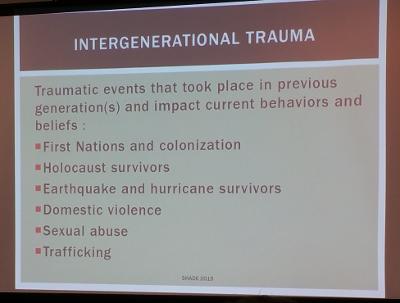
Effects of Trauma
- Post Traumatic Stress Disorder (PTSD)
- Dissociative disorders
- Self-blame, self-hatred, shame
- Hopelessness, helplessness
- Nightmares, sleeping issues
- Rage, anger management issues
- Suicidal thoughts and attempts
- Paranoia
- Stockholm Syndrome
- Self-care issues
- Distrust
- Fear
Victims and survivors of trauma may act out and retaliate when they feel others are trying to control them, as it may bring up memories of being controlled in harmful and frightening ways. It is their response to trauma, not a defect of their character. Meet them where they are at and empower them with options and choices for them to make their own decisions.
Trauma Informed Care
Staff are aware of potential triggers and reactions for survivors under their care. Staff will have planned a strategy to assist survivors to calm themselves when triggered with non-life-threatening environmental stimuli.
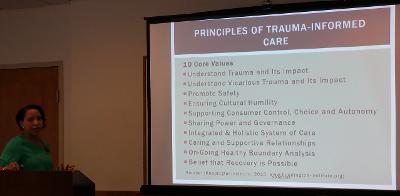
- Understand trauma and its impact
- Understand vicarious trauma and its impact
- Promote safety
- Ensuring cultural humility
- Supporting consumer control, choice, autonomy
- Sharing power and governance
- Integrated & holistic system of care
- Caring and supportive relationships
- On-going healthy boundary analysis
- Belief that recovery is possible
REFRAME YOUR LANGUAGE to communicate what they CAN do, instead of telling them what they can't do.
Example:
No watching TV after 10 pm VS You can watch TV until 10 pm
MISSSEY - S.H.A.D.E. Project - Trauma Informed Care - Short Overview Presentation - From a Survivors Perspective - Sarai Smith-Mazariegod March 31, 2016
Translate This Page